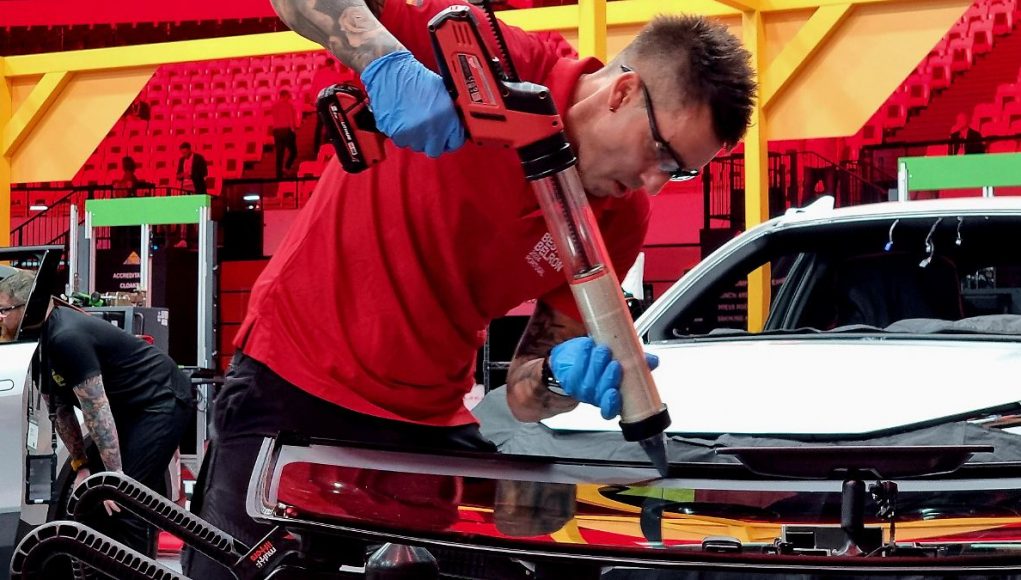Every two years, 30 auto glass technicians compete for the title of world champion: who can repair or replace glass in a car the fastest and with the highest precision? But the technicians have to be able to do even more to win. It's all about millimeters, the right gloves and sometimes a smile.
He would also fit well into the national football team. That is a thought that certainly comes to mind for many when they first meet Steffen Taeterow: the man from Neubrandenburg has the muscles for it and, like many top footballers, is impressively tattooed. His eyes radiate self-confidence, calmness and well-measured attacking power. He looks as if he could play the deadly pass from the backcourt at any time.
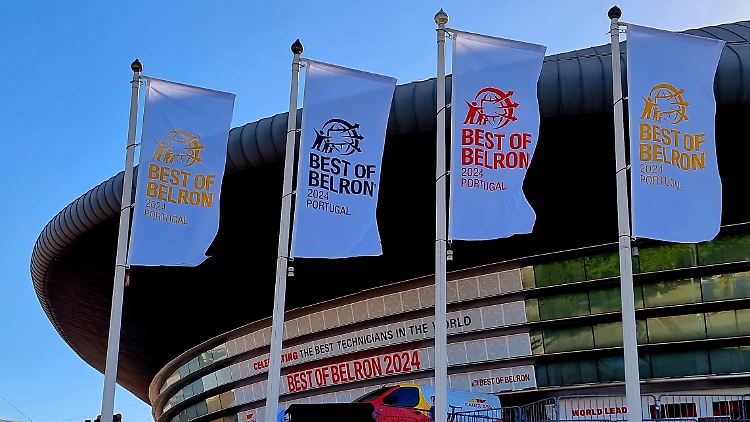

The best of their nations meet in Lisbon.
(Photo: sp-x/Peter Weißenberg)
But Taeterow wants more than just to be Europe's top athlete on these two days in June. The 43-year-old wants to become world champion. As the best auto glass technician among 30 competitors from New Zealand to the USA to South Africa, Slovenia and France. Industry giant Belron – better known in Germany as Carglass – has been holding the competition every two years since 2000 among tens of thousands of its fitters. The best of their nations have just met in Lisbon's largest event hall. Taeterow's workplace is right at the front on the left.
The right car for the competition
Because it's just like the one in Wanne-Eickel, Sydney or Cape Town – it's set up 30 times identically in the Meo Arena. With 30 identical Toyota C-HRs. “It's not that easy to find the right car for the competition,” says Taeterow's trainer René Schmidt, who has already taken part in the world championships twice. After all, the car has to be present in all markets, otherwise individual participants would be at a disadvantage. And it's about a practical comparison.
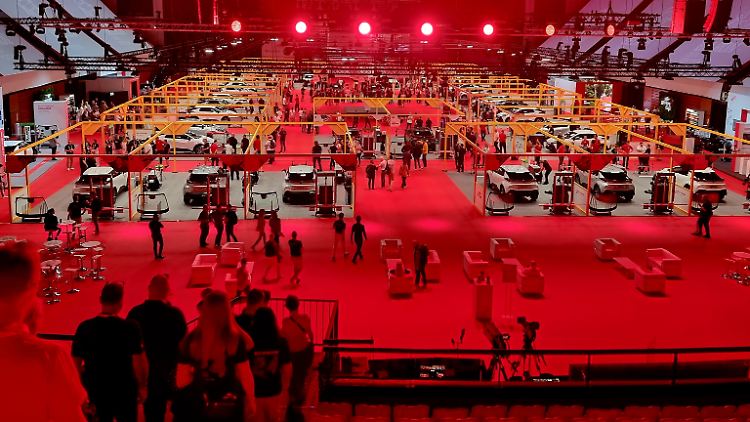

Belron, better known in Germany as Carglass, is launching the competition among tens of thousands of its fitters.
(Photo: sp-x/Peter Weißenberg)
Because what Taeterow and his competitors do in the competition is an exact reflection of the everyday assembly work. Ideally, every customer car around the world is treated in the same way as in the hall with more than 1000 spectators. Cleaning a stone chip from the windshield, filling it and polishing it away, replacing a broken side or rear glass or even the entire windshield. “We do this every day using a globally standardized process and many patented techniques,” says Taeterow. In Germany alone, more than 1500 fitters work on thousands of windshields in line with global specifications.
Jury of 70 experts
In their world championship, the participants have to master precisely these kinds of tasks. The cars have been prepared for this beforehand. A jury of 70 experts observes and evaluates the participants' performances very closely.
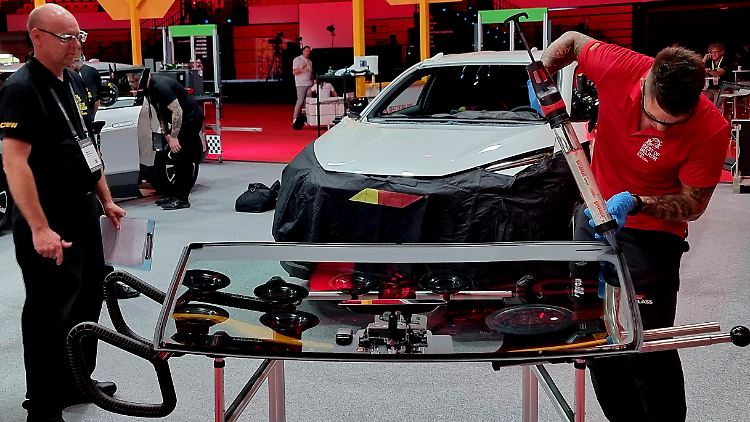

Taeterow under the critical eyes of a jury member.
(Photo: sp-x/Peter Weißenberg)
Firstly, the quality of the workmanship is assessed. The jury looks at how precisely and carefully the individual work steps are carried out. Does the Finnish Emma Tenhunen also meticulously vacuum the door panels and footwells when fitting the side window? How does Jack Karssemeyer from Sydney glue the rear window? Does Michael Fischer from Austria also check the quality of the windshield wipers? The jurors don't miss it.
The result must be visually perfect
In the end, the result must of course be visually perfect. When sealing a small stone chip, Taeterow cannot overlook any air pockets or even a speck of dust. Only a hair-thin line in the glass shows, when examined very closely from the outside, where the pebble had flown. When polishing the glass, the mechanic works up a sweat. He wipes the drops from his forehead with a black towel every few minutes. He doesn't want anything to land on the shiny glass.
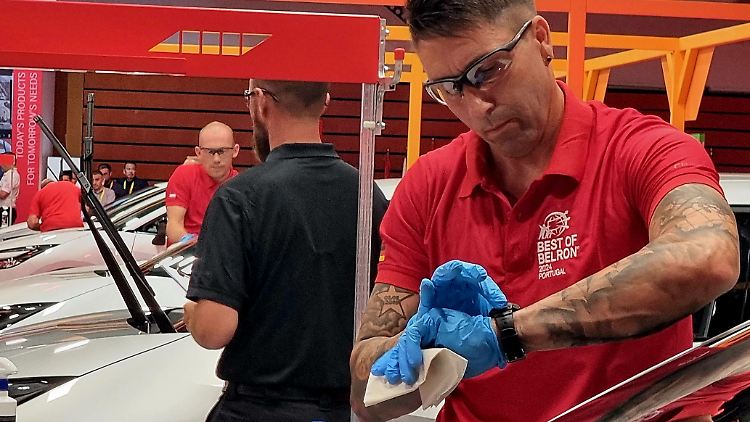

The clock is ticking: The special stages have times.
(Photo: sp-x/Peter Weißenberg)
During each step of the work, Taeterow also looks up at the two judges, who are always watching him. Thumbs up, job done. “This kind of eye contact is important – both then know exactly that the gloves for sharp-edged glass have been swapped for those for caustic chemicals,” says Schmidt. Such changes are necessary several times; Taeterow throws the rubber gloves with the glue residue into the appropriate waste container. Environmental protection is important, even in competition. His trainer trained Taeterow in such processes for four months – on customer vehicles that come into the workshop on a daily basis.
The clock is always clearly visible on a video cube under the roof of the hall, which is the size of a football field. Each of the five special stages is given a time. The participant is assessed on how quickly he completes the entire task. He should also optimize his work processes in order to save as much time as possible. Unnecessary delays must be avoided. “We have optimized every step and move again and again,” says Taeterow. When it comes to time, nobody can beat the German. While he is already lifting a new windshield into the vehicle and gluing it in place on the second afternoon, not a single competitor has removed the old one.
Three women in the competition
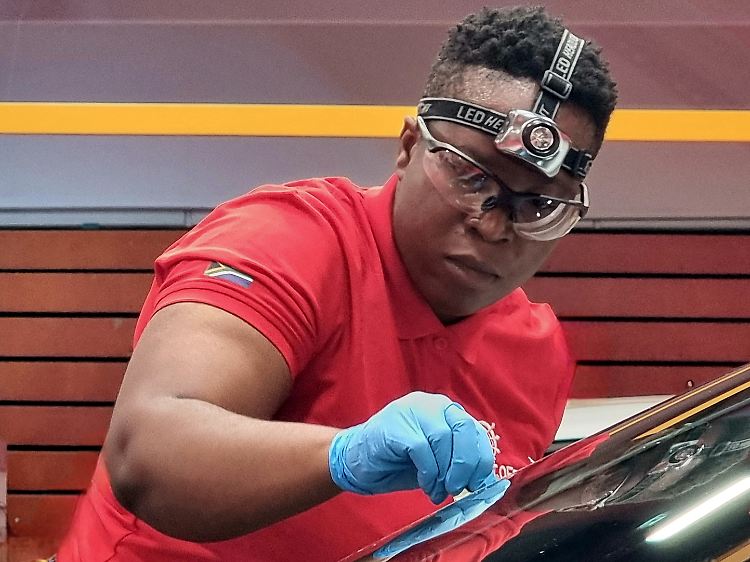

Kgomotso Molefe is one of three women in the competition.
(Photo: sp-x/Peter Weißenberg)
Kgomotso Molefe, for example, has a clear disadvantage compared to the giant Taeterow: the South African, one of three women in the competition, is less than 1.70 meters tall. “That's why I always need a folding stool to climb on in order to reach the middle of the target,” she says. But maybe that gives you extra points for problem-solving skills? Only the judges, who award 5,000 points based on such criteria, know for sure.
They also pay close attention to what chemical residue Molefe throws into one of the garbage cans provided for this purpose or where she looks in the electronic manual to find a spacer when removing the windshield. A comprehensive understanding of vehicle technology and materials is another important criterion. Knowing the latest repair and calibration techniques and using the right tools is very important.
Congress and supplier exhibition alongside the World Cup
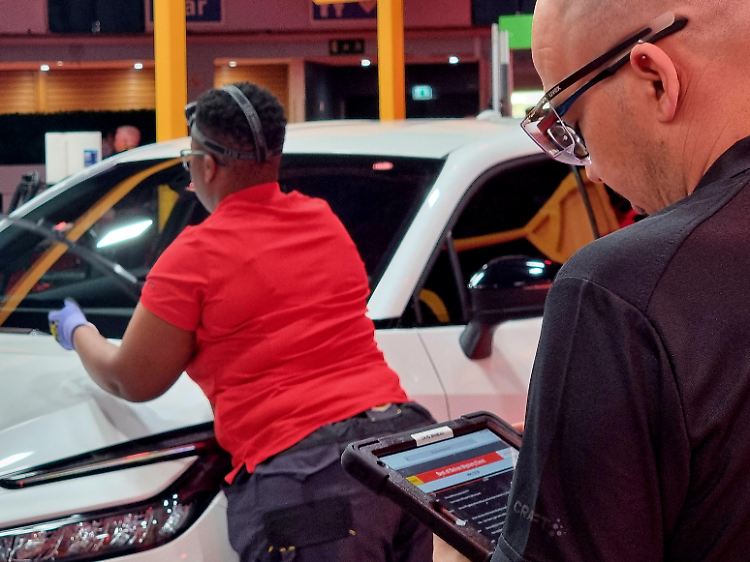

Molefe needs a stool to reach the center of the disc.
(Photo: sp-x/Peter Weißenberg)
Vehicles are developing rapidly – including when it comes to glass. That's why the championship also includes a congress and an exhibition of the repair company's suppliers. The standard program now also includes recalibrating the front cameras. “They are located under the roof behind the windshield – and have to be realigned to a fraction of a millimeter after the windshield has been installed,” says Taeterow. To do this, he rolls a refrigerator-sized measuring device in front of the front of the Toyota and points it precisely at the front camera. Connected via a PC and a connection to the control unit in the car, the mechanic can now start the software, which uses the measurement values to realign the camera image precisely to the road.
Even with this custom work, Taeterow always tries to make eye contact with the judges. Because communication and presentation also give – or cost – points. One of the two always plays the role of the customer to whom the mechanic explains what he is doing. A thumbs up, a smile, radiating calm and confidence… all important to become a master. Too much hecticness or unrest is undesirable. “Just like in the workshop at home,” says one judge. Trust is especially important when the view is obscured.
Mastery as motivation
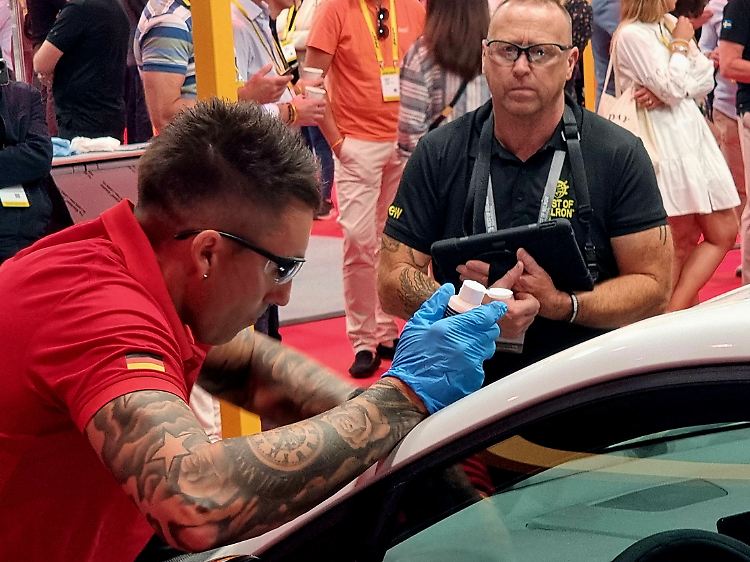

Taeterow did his “best” – but it wasn't enough to win the title.
(Photo: sp-x/Peter Weißenborn)
How many points are there for each category? That remains a secret – even after the last special stage. Because despite the winner's trophy and an annual salary as a bonus for the “Best of Belron 2024” – the championship should above all be a motivation for the participants and their fans from the national companies. And a showcase for the colleagues, customers and suppliers of the auto glass.
That's why Taeterow, his coach and the German delegation are a little disappointed that after two exciting days in 2024 they didn't win the title. The Canadian David Chester won it. “But we definitely did our best,” says German coach René Schmidt.


















